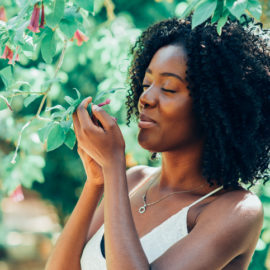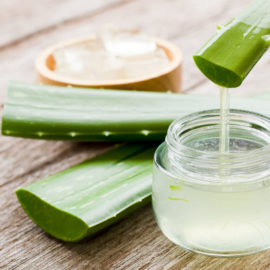Hair health has turned into a key consumer concern across all gender and ages. Scalp health is essential to this goal, as it means stronger, thicker hair. Many hair care users already know that around 75-85% of women in Europe agree that taking care of their scalp can improve the condition of their hair. Although scalp care and thick fiber hair claims are still considered niche in the hair care industry, they are slowly but steadily expanding. While today 7% of launches reference scalp care and thick fiber, five years ago it was only 1% of hair care products.
Figures show hair health and scalp care are now emerging as a top concern for hair health, especially as it pertains to the thickness and resilience of hair fiber. Naturally, this is an opportunity for hair care brands to grow, provided they help consumers learn about the best options for scalp care and cater to their needs. Here, we explore how to develop scalp care and thick fiber hair products that respond to broader consumer demand.
Content
A new anti-aging approach to hair health and thickening hair fiber products
Certainly, linking scalp health to anti-hair loss claims is a logical approach. Brands will access this growth opportunity in scalp treatments by focusing on the right target. Older generations such as baby boomers are now concerned about hair loss and a lack of volume, both problems that can be tackled by the right scalp and thick fiber hair products.
However, hair care companies wishing to work with scalp treatments must take into account a recent major shift within the anti-aging market. Nowadays, brands are ditching the “rejuvenating” mantra and embracing a more age-positive approach, which empowers consumers to feel safe and beautiful in their own skin, accepting their own age and appearance. Although the formulas may be similar, the marketing approach is different : now, products are targeted towards well-aging, not anti-aging, a concept that also involves a renovated focus on hair health.
Thick fiber: tapping into global trends concerning hair health
In the evolving landscape of hair care, connecting hair health, scalp care, and thick fiber to address hair loss concerns presents a promising strategy. As we enter a new decade, an exciting opportunity arises—a new product category dedicated to scalp care. This opens the door for brands to explore innovative possibilities and disrupt the market. Notably, the introduction of products like scalp essences and scalp masks, including overnight-use options, holds the potential to become mainstream with the right strategies.
A key source of inspiration for new formats is the Korean market. Trends such as K-beauty rituals have proven to be extremely popular on a global scale. According to Statista figures, a worldwide survey found that around 35.6% of respondents claimed Korean beauty products were very popular in their country. This success has been linked to K-beauty products’ innovative presentations, ritual-oriented formulas, and their link to effective scientifically-proven results. The hair health market and, more specifically, brands looking to implement scalp treatments and thick fiber hair products, can draw inspiration from this successful formula.
The top hair health rituals popular right now
Brands looking to incorporate hair health claims should pay close attention to these three important trends today:
- Scalp care: understanding the link between a healthy scalp and hair growth has led towards the popularization of formulas targeting scalp exfoliation, scalp massages, and or scalp serums.
- Hair masks: these are becoming increasingly popular as they provide intense hydration and nourishment. This is particularly true when it comes to formulas embracing natural ingredients
Nourishing oils: consumers are also paying a growing attention to formulas that aim at nourishing and hydrating the hair, with ingredients such as argan oil, or coconut oil for scalp treatments.

Inclusive approaches to hair care and thick fiber hair products
In light of drawing inspiration from global markets, another key market condition is the demand for inclusive solutions. Successful new beauty narratives should embrace inclusivity trends by targeting all types of demographics, including cultures that have been typically ignored by beauty brands and advertising. Those with textured hair or those who belong to a Muslim market, where women traditionally cover their hair, must also be addressed by brands and their messages for a healthy hair and thick fiber hair products
This way, companies position themselves as purpose-led brands in a new market paradigm where people are increasingly basing their purchases on what brands say and stand for. According to an Accenture report, 62% of consumers are attracted to buying a product when a brand has “ethical values and demonstrates authenticity in everything it does.”
Caring for the environment and hair health: beyond thick fiber hair
However, it’s essential to also link these treatments with wider sustainable and ethical trends that are increasingly driving demand and becoming key brand differentiators. This combination will bring sustained growth in the years to come. As with inclusivity, consumers are increasingly aware of how sustainable a product is including all possible actions undertaken by brands for sustainability: from minimizing packaging to where raw materials and ingredients come from and how they are extracted. As the Accenture report mentioned above claims, 62% of respondents are more likely to buy a product if they perceive a brand believes “in reducing plastics and improving the environment.”
The increasing use of natural products in hair care and beauty products is directly linked to these new consumer demands. Brands are thus pushed to create a bigger story around ingredient provenance and ingredient benefits, often linking their products to traditional medicine such as Ayurvedic methods. With a well-rounded approach to sustainability, brands can cultivate a wholly positive image that spreads positivity, inclusivity, and care from every angle.
Kerascalp, the sustainable anti-aging scalp product for thick fiber claims
Kerascalp is an ingredient developed by Provital for scalp and thick fiber hair treatments, meeting consumer demands for sustainable hair care products, while also addressing anti-aging and inclusive hair concerns.
As we age, hair follicles miniaturize, leading to the visible effects of hair aging. Hair gets thinner, loses its volume, breaks more easily and grows more slowly. Kerascalp acts directly on the scalp, providing the right hair rejuvenation treatment that helps to prevent hair miniaturization and weakening and achieving shinier, healthier hair. In in vivo studies with a range of adults aged between 40-60, it was found that compared to a placebo, hair was:
- 31% more resistant and 29% glossier;
- Hair was 56% thicker and there was 49% more hair in total;
- And 12% more hair follicles were in the anagen phase.
This ingredient is derived from amla (Phyllanthus Emblica) fruits. These plants have been used in Ayurveda and other traditional Asian medicine for centuries, containing an array of antioxidants that have made them popular as rejuvenating and well-being treatments. Kerascalp goes further in promoting sustainable solutions for scalp health: as a waterless active ingredient, it addresses water scarcity and pollution issues, becoming part of a proactive movement towards a sustainable future.
No comments yet
There are no comments on this post yet.





Leave a comment